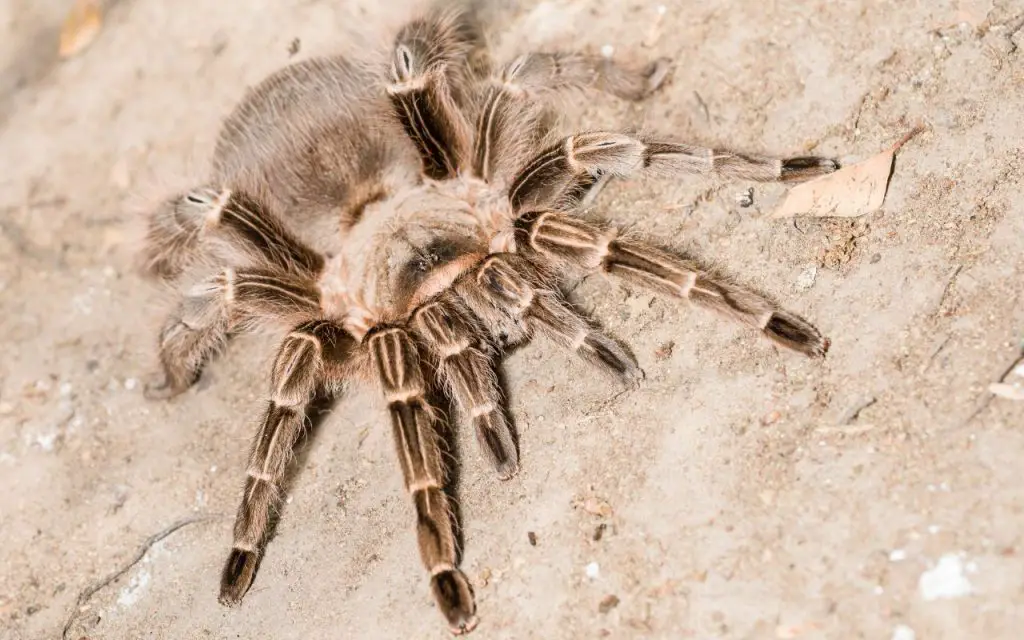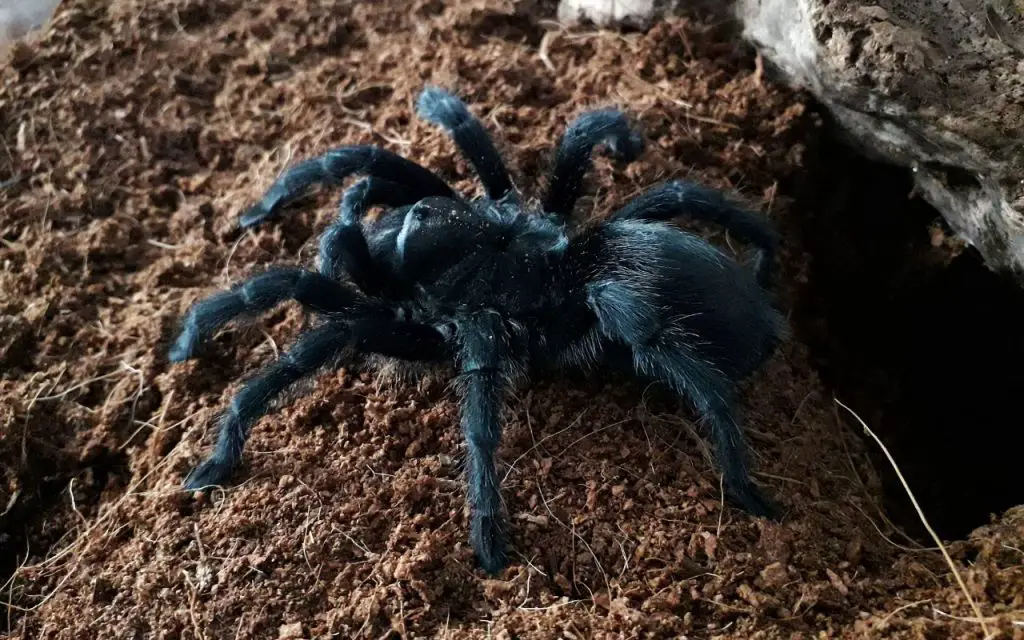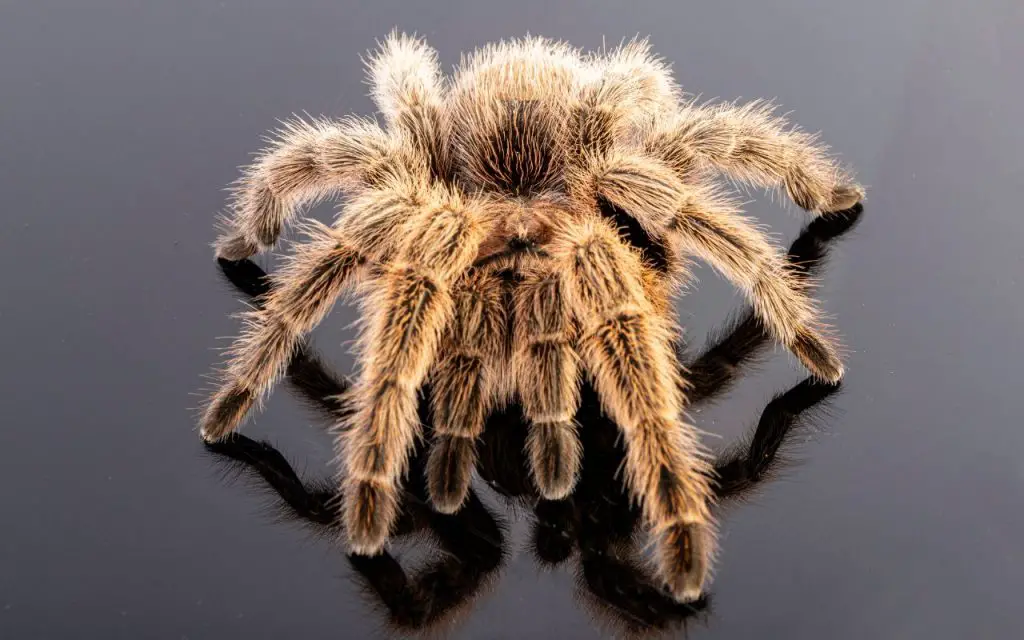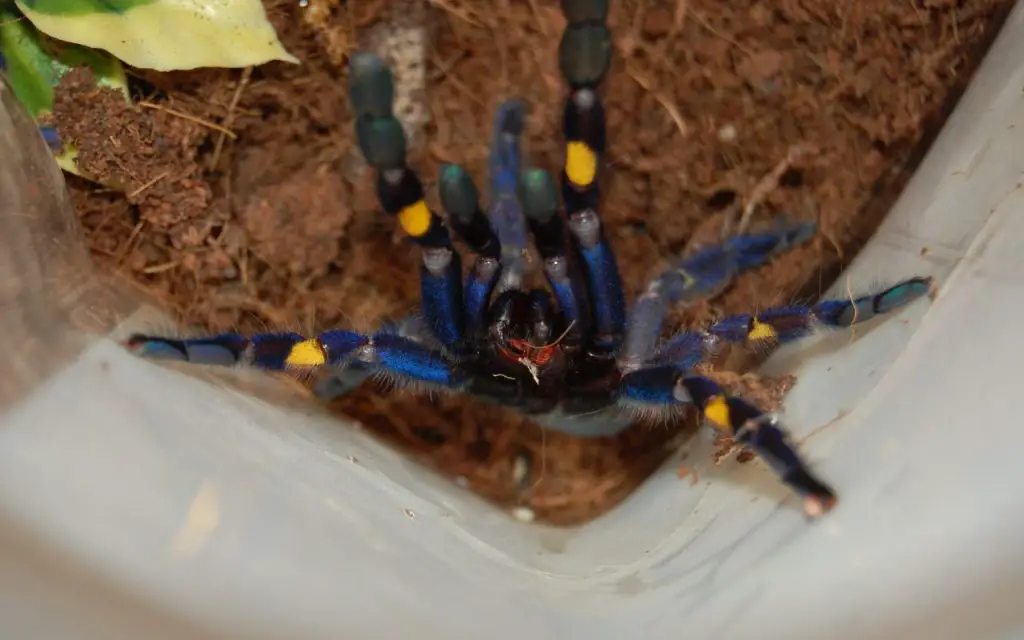Last updated on March 22nd, 2023 at 12:36 pm
Do Tarantulas Bond With Owners? Sadly, all evidence suggests that no they do not. They can still be tamed and become tolerant of us though…
Are tarantulas nice to humans? Can spiders recognize their owners? The following article will discuss both of these questions in depth. In addition, we’ll discuss whether spiders have personalities and whether they can bond with their human owners. Tarantulas aren’t exactly friendly pets, but they aren’t generally aggressive either.
Are tarantulas nice to humans?
While tarantulas are not particularly friendly, they are not aggressive and are not very fast moving. Depending on the species, they may be able to be handled without risk.
Still, tarantulas are not always fond of being handled, and they may become skittish if they feel threatened. They don’t enjoy human contact and are usually not interested in human companionship. So, if you’re looking to purchase one, make sure you know what to expect.
While tarantulas are not harmful to humans, their urticating hairs can cause skin rashes and inflammation of the eyes and nasal passages. You shouldn’t handle a tarantula unless you are very confident – new world species can kick their hairs at you if they become annoyed. Also, dropping a tarantula more than a few inches can kill it.
Generally speaking, old world Tarantulas, like the Baboon Spiders, are grouchy and hate to be handled or disturbed by humans. New world species, on the other hand, are much more laid-back and are more likely to tolerate us humans around them.

Can pet tarantulas show affection?
A common question about tarantulas is: Can they show affection? While it would be nice to think so, the answer is definitely no. Although tarantulas do not display complex emotions, they can get used to you and realise that you are not a threat.
This is about as get as it gets with these spiders! Over time, you may find that your tarantula is less skittish when it comes to handling, and stops kicking urticating hairs at you, if it did previously.
The first step in taming your tarantula is to teach it that you are not a threat. Many tarantulas probably recognize human scent and if you are always gentle and slow-moving when dealing with them they will not associate it with the presence of a threat.
If they are fed regularly and have routine feeding times, they may be more handleable outside of feeding hours. This is because in time, they may begin to recognize when you are there feeding or not.

Do pet tarantulas have personalities?
One of the most common questions we get about tarantulas is, “Do pet tarantulas have personalities?” It turns out that the answer to this question depends on the genus and species of the spider you have.
In fact, it depends on whether you have a New World or an Old World tarantula, as well as its experience with humans. Generally, Old World tarantulas have more defensive personalities, and New World tarantulas are more relaxed.
Although pet tarantulas do not have a true personality, some of them will be tolerant and docile toward their owners. When they are around humans, they may be relatively easy to handle and drop any defensive behaviour.
After a while, they may also see you as a source of food, and take live insects from feeding tweezers. Just make sure you don’t try to handle them during this time!
One thing I’ve noticed over the years is that some tarantulas don’t mind being handled, whereas others are afraid when you approach them. If your tarantula hates being handled, it might do some of the following:
- kicks hairs off of its abdomen
- flatten itself so it’s hard to pick up
- run in sudden fast bursts (a lot of people in the hobby call this “teleporting”)
- raise its front legs in a threat display
- retreat as far as it can into a burrow or hiding place
If you want your tarantula to be relaxed and calm, the first step is giving them a great home! Check out the options below:
Can spiders recognize their owners?
Although we are unable to know for sure, tarantulas probably don’t recognize their owners. If they know that we are nearby, they may associate your presence with feeding time but they probably just sense a human, rather than you specifically.
Unlike humans, spiders do not have noses and use their chemical receptors on their legs to identify different scents. They have a very small brain and limited cognitive ability, which is geared mainly towards sensory perception – rather than thought or emotion.
Given that this is how they interpret things, it’s safe to say they do not recognize faces or one person from another. In fact, tarantulas probably cannot see human faces at all because they have poor eyesight.
Instead, they use scent and vibrations to recognise both predators and prey. Both of these senses seem to be more important to most species than sight.

Which spiders like to be handled?
The answer to the question “Which spiders like to be handled?” depends on what type you are looking for. Not all spiders are friendly, so if you are new to the world of spiders, it may help to be a little more familiar with their different species.
While some species are less friendly than others, they can still make great pets if you follow some basic rules.
If you are a novice, it’s best to stick with spiders that are not highly venomous or fragile. Beginner tarantulas are great to handle because they don’t have venom as strong as more advanced species and are more widely available. Examples include the Chilean Rose and the Brazilian Black.
Some species, such as the Green Bottle Blue and the Mexican Redleg, are suitable for handling because their venom is comparable to that of a bee. Nonetheless, their tempermaent varies and some are more tame than the rest.
Other spiders fall into the “look but don’t touch” category. They are too delicate or too grouchy to handle. One example being the Gooty Saphire, which has a very painful bite and irrascible demeanor.

In Conclusion
Spiders are not cuddly pets like hamsters. In fact, they probably never will show any kind of affection towards you. By the way – let me know if one does, as it would be a scientific first!
Overall, they are a lot different from mammals in many aspects of their care and temperament. Let’s highlight just a few of these differences in a comparison table:
| Difference in temperament | Mammals | Spiders |
| Social behavior | Many mammals are social animals and live in groups or herds | Most spiders are solitary animals and prefer to live alone |
| Communication | Mammals have complex forms of communication, including body language, vocalizations, and scents | Spiders communicate primarily through touch and vibrations |
| Parental care | Mammals generally provide extensive parental care to their offspring, including nursing and protection | Most spider mothers provide little or no parental care to their offspring |
As you can see, there’s a definite pattern: Spiders just aren’t the affectionate type! My personal opinion, though is that this shouldn’t matter to you. If you keep a tarantula, it should be because of how incredibly ancient, unique, and fascinating these creatures are.

 Acrylic Tarantula enclosure, great for species that require high humidity!
Acrylic Tarantula enclosure, great for species that require high humidity! Exo Terra 12x12x12 inch glass Terrarium, best for species that require low humidity
Exo Terra 12x12x12 inch glass Terrarium, best for species that require low humidity




